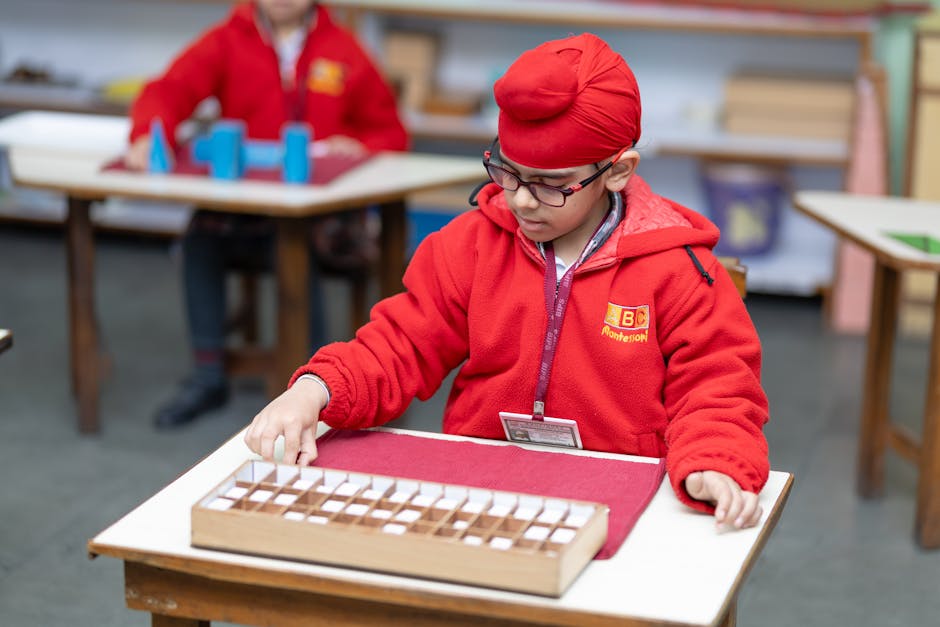Understanding the Four Pillars of Holistic Child Development
Understanding the Four Pillars of Holistic Child Development
Blog Article

Understanding the multifaceted nature of child development is crucial for nurturing well-rounded individuals. holistic child development emphasizes the interconnectedness of various growth areas, recognizing that emotional, social, physical, and cognitive development all play vital roles in shaping a child’s overall well-being. This comprehensive approach not only supports children in thriving during their formative years but also lays a strong foundation for lifelong learning and personal growth.
Understanding the Four Pillars of Holistic Child Development
The four pillars of holistic child development are emotional, social, physical, and cognitive aspects. Each domain is interdependent, contributing to a child's complete development.
Emotional Development
Emotional development involves understanding and managing emotions. Children learn to express feelings and develop empathy through interactions with caregivers and peers. Supporting emotional development can be achieved through active listening and validating feelings. For instance, when a child experiences frustration, guiding them to articulate their feelings can foster emotional intelligence.
Social Development
Social development is about forming relationships and learning to interact with others. Encouraging cooperative play and group activities can significantly enhance social skills. For example, organizing playdates or group projects helps children learn negotiation, teamwork, and conflict resolution. These skills are essential for building healthy relationships throughout life.
Physical Development
Physical development encompasses gross and fine motor skills, which are critical for overall health and well-being. Activities like running, jumping, and climbing help develop strength and coordination. Additionally, fine motor skills can be enhanced through crafts, puzzles, and other hands-on activities. Parents and educators should provide ample opportunities for active play to promote physical fitness and coordination.
Cognitive Development
Cognitive development refers to the mental processes involved in learning and problem-solving. This area can be nurtured through various stimulating activities, such as reading, puzzles, and educational games. Encouraging curiosity and critical thinking is vital. For instance, asking open-ended questions during storytime can provoke thought and encourage children to express their ideas and comprehension.
Practical Strategies for Parents and Educators
To effectively support each area of holistic child development, parents and educators can implement specific strategies tailored to their children's needs.
For emotional development, parents can create a safe space for expression by using tools like emotion charts or journals. This encourages children to identify and communicate their feelings effectively. Educators can incorporate social-emotional learning programs into their curriculum, providing structured environments for children to practice these skills.
To enhance social development, group activities and cooperative games are essential. Parents can facilitate playdates or community activities where children can engage and learn to interact with others. Educators can organize classroom activities that require teamwork, fostering collaboration and social skills.
In terms of physical development, parents should prioritize outdoor play. Simple activities like biking, hiking, or sports can encourage physical fitness. Educators can design a curriculum that includes daily physical activity, ensuring that children remain active and engaged.
To support cognitive development, parents can establish a reading routine, exposing children to diverse literature. Engaging in conversations about the stories fosters comprehension and critical thinking. Educators can create an enriching classroom environment with resources that stimulate curiosity and exploration.
The Role of Play in Holistic Development
Play is a fundamental component of holistic child development. It serves as a medium through which children explore their environment, develop social skills, and enhance their cognitive abilities. Through play, children engage in imaginative scenarios that promote emotional understanding and social interaction.
Moreover, unstructured play allows children to make choices, solve problems, and learn from their mistakes. It fosters a sense of independence and confidence, essential traits for lifelong success. Parents and educators should prioritize play as a vital element of the learning process, ensuring that children have opportunities for both guided and free play.
In conclusion, adopting a holistic approach to child development is essential for nurturing well-rounded individuals. By understanding and supporting emotional, social, physical, and cognitive growth, parents and educators can create environments that foster comprehensive approaches to child development. Emphasizing play as a fundamental element will further enhance this growth, allowing children to thrive in all aspects of their lives. For more insights on fostering holistic child development, consider visiting this resource.
Report this page